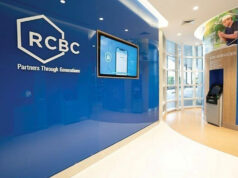SEATTLE — This city is the largest in the state of Washington and the entire Pacific Northwest region of North America. Its metropolitan area encompasses the state’s eight most populous counties, officially defined by the US Census Bureau as the Seattle-Tacoma-Olympia combined statistical area that is home to two-thirds of Washington’s population.
Greater Seattle hosts the headquarters of major US companies such as Microsoft, Amazon.com, Starbucks, Nordstrom, Costco, T-Mobile, Expedia Group, and Nintendo of America.
Microsoft’s Redmond campus occupies almost a million square meters of office space with additional offices in the suburbs of Bellevue and Issaquah. As of 2016, it is the world’s largest software maker in terms of revenue.
Founded by Seattleites-by-birth Bill Gates and Paul Allen in 1975, Microsoft now employs over 130,000 employees worldwide. Its best-known products are the Windows line of operating systems, the Microsoft Office suite, the Internet Explorer browser, and the Xbox video game consoles.
Japanese multinational electronics firm Nintendo’s North American subsidiary is likewise based in Redmond, with a distribution center in North Bend. German-owned wireless network operator T-Mobile and global travel tech company Expedia are both headquartered in Bellevue.
Amazon, the biggest online retailer in the world, is based in downtown Seattle along with the Nordstrom chain of department stores. Wholesale warehouse club Costco opened its first outlet in Seattle 35 years ago but maintains its global headquarters in Issaquah.
Seattle has a reputation for heavy coffee consumption, especially after Starbucks pioneered the so-called “second wave coffee” in the city’s iconic Pike Place Market circa 1971. Many other successful artisanal cafes originated here, including Seattle’s Best Coffee and Tully’s.
Although Boeing moved its corporate headquarters from Seattle to Chicago more than a decade ago, it still operates large manufacturing plants in the suburbs of Everett and Renton while remaining as the largest private employer in Greater Seattle.
The Port of Seattle is a major gateway of American trade with Asia and luxury cruises to Alaska. It also operates the Seattle-Tacoma International Airport at a relatively new city called SeaTac in King County, Washington. Regional airline company Horizon Air and its sister carrier Alaska Airlines are headquartered in SeaTac.
Seattle’s economy is largely driven nowadays by the tech sector, mostly in the fields of information technology, biotechnology, and clean technology. It remains a hotbed for start-up businesses and has been ranked as “America’s No. 1 Smart City.” The local government has committed to make it North America’s first climate-neutral city, with the goal of reaching zero net per capita greenhouse emissions by 2030.
According to the US Consumer Technology Association (CTA), emerging technologies will propel the tech industry to a record-breaking $351 billion in retail revenues this year, growing by 4% from the year-ago level.
“Consumers are rapidly adopting new, emerging technology products — with voice-activated smart speakers as the new standout of 2017 and 2018 — sparking growth in smart home devices, as voice interaction adds a new level of convenience in our lives,” the CTA said.
Aside from these smart speakers, virtual reality and other home automation products are projected to rise exponentially by America’s largest tech trade association. The CTA also expects drone sales to reach record highs together with wearable products in the health, fitness and sports market.
Excitement about these emerging technologies continues to grow among the people of Greater Seattle, and their Filipino counterparts should emulate the Seattleites’ high degree of tech consciousness to build our own smart cities of the future.
J. Albert Gamboa is CFO of the Asian Center for Legal Excellence and Chairman of the FINEX Media Affairs Committee’s Golden Jubilee Book Project.



